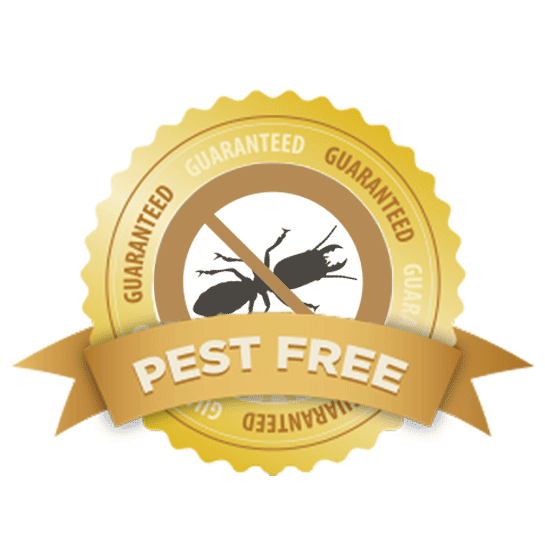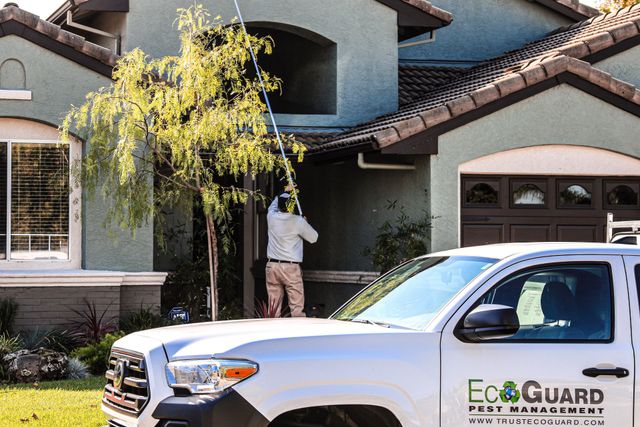Safe and Efficient Chicago Pest Control for Restaurants: Protect Your Company from Pests
Safe and Efficient Chicago Pest Control for Restaurants: Protect Your Company from Pests
Blog Article
Exploring Numerous Techniques and Methods for Comprehensive Insect Control in Residential Spaces
The landscape of bug control in property spaces has actually evolved dramatically, requiring an extensive understanding of numerous methods that can be employed for reliable management. Standard chemical treatments, while efficient, are significantly being complemented by eco-friendly options and Integrated Pest Administration (IPM) strategies.
Comprehending Parasite Control Basics
Efficient parasite control is important for preserving a healthy and balanced and safe living environment. Comprehending the essentials of pest control involves acknowledging the kinds of pests that typically get into property rooms, the potential risks they position, and the value of preventative measures. Typical family bugs consist of rodents, insects, and other unwanted creatures that can jeopardize health, damages home, and activate health issues.
A vital very first step in parasite control is identifying the specific pests present. This can involve checking areas such as cellars, attic rooms, and kitchen areas, where insects are likely to thrive. As soon as identified, it is crucial to recognize their habits, breeding cycles, and chosen environments, which can educate ideal control methods.
Preventive measures are basic to efficient insect management. These consist of securing entry factors, preserving sanitation, and lowering clutter to eliminate concealing areas. Additionally, correct food storage and waste management can dramatically reduce the allure of a home for pests.

Typical Chemical Treatments
Amongst the different parasite control strategies, conventional chemical treatments have long been utilized to attend to problems in household rooms. These therapies typically involve the application of chemical pesticides developed to eliminate insects such as insects, rodents, and other unwanted microorganisms. The performance of these chemicals can vary, depending upon the kind of bug, the formula of the pesticide, and the technique of application.
Common classes of typical chemical therapies include insecticides, fungicides, rodenticides, and herbicides, each customized to fight particular parasites. Pesticides, for instance, might target termites, ants, or cockroaches, while rodenticides are specifically created to regulate rodent populaces. These chemicals are typically readily available in numerous kinds, including lures, granules, and sprays, allowing homeowners versatility in application.
Regardless of their efficiency, standard chemical therapies elevate worries pertaining to potential poisoning to people, family pets, and beneficial organisms in the environment. Therefore, it is critical for homeowners to very carefully adhere to application standards and security precautions to lessen threats. Integrated Bug Monitoring (IPM) approaches can enhance these therapies, guaranteeing an extra all natural technique to pest control while taking full advantage of efficacy and security in household settings.
Eco-Friendly Pest Control Options
Eco-friendly pest control options are obtaining popularity as property owners look for much safer and much more lasting options to traditional chemical treatments. These approaches focus on the health of both residents and the environment, minimizing the impact of insect control methods.
One widely adopted environmentally friendly approach is using natural repellents derived from important oils, such as peppermint and citronella. These oils not only deter pests yet additionally provide positive aromas for indoor spaces. Additionally, diatomaceous earth, a powder made from fossilized algae, acts as a natural pesticide by harming the exoskeletons of pests upon contact, bring about dehydration.
Another efficient technique entails advertising biodiversity in backyards and gardens. Introducing useful bugs, such as lacewings and ladybugs, can normally manage pest populaces (pest control chicago llc). Additionally, using traps made from eco-friendly products can help catch and eliminate parasites without triggering injury to the environment
Normal upkeep, such as securing entry points and correct hygiene, further improves the efficiency of green parasite control. Property owners can take proactive steps to avoid infestations, guaranteeing a more sustainable living setting while properly taking care of pest-related issues.
Integrated Pest Management Approaches
Carrying out integrated insect management (IPM) methods uses a comprehensive approach to pest control that emphasizes avoidance and long-term options. IPM incorporates numerous strategies, concentrating on understanding insect behaviors, life cycles, and eco-friendly dynamics to minimize bug populations efficiently. This multifaceted strategy focuses on non-chemical approaches, such as organic control, habitat adjustment, and cultural techniques, to reduce reliance on chemicals.
A fundamental element of IPM is keeping track of and identifying bugs properly. When intervention is needed, this includes regular evaluations and the establishment of action limits to identify. By comprehending the details insects affecting household settings, targeted treatments can be employed, lowering the possibility of unnecessary chemical applications.
One more essential component of IPM is educating house owners regarding the importance of hygiene and upkeep methods. By promoting an atmosphere that discourages parasite infestations-- such as sealing entrance points and managing wetness-- citizens can considerably alleviate the risk of bug problems. see Furthermore, when chemical controls are deemed needed, IPM supporters for the use of the least toxic alternatives to reduce environmental effect. With these approaches, IPM not just addresses current bug issues but additionally promotes sustainable techniques that promote long-term parasite administration success.
Preventative Steps for Homes
To ward off potential bug invasions, house owners ought to adopt a positive approach that stresses preventative procedures. This begins with preserving a orderly and tidy living space, as mess and food debris draw in parasites. rat removal chicago Illinois. Consistently vacuuming, sweeping, and cleaning down surfaces can significantly decrease the risk of invasions
In addition, sealing access points is important. Homeowners should check windows, doors, and foundation cracks for spaces that can permit pests accessibility to the home. Using caulk and weather condition removing can successfully obstruct these look at this now entryways.
Proper food storage space is one more crucial step. Saving food in closed containers and quickly tidying up crumbs or spills assists deter rats and bugs.
Additionally, handling outdoor environments can protect against pests from trespassing on domestic areas. House owners ought to ensure that drainage systems are working well, and landscape design is kept clean. Trimming shrubs and trees away from your house and getting rid of standing water can additionally diminish parasite environments.

Verdict
To conclude, effective bug control in residential rooms necessitates a diverse method that combines typical chemical treatments with eco-friendly practices and Integrated Pest Administration techniques. By prioritizing preventative procedures, such as keeping cleanliness and sealing entry points, home owners can dramatically lower bug incidents. Routine monitoring and accurate bug identification additionally enhance monitoring efforts. Inevitably, a well balanced approach that incorporates natural repellents and the very least toxic chemicals promotes a safe and healthy and balanced living setting while attending to pest-related obstacles.
Recognizing the fundamentals of parasite control involves identifying the types of parasites that commonly invade residential spaces, the prospective discover here threats they pose, and the relevance of preventive steps.An important initial step in bug control is recognizing the specific insects existing. Integrated Bug Monitoring (IPM) strategies can complement these treatments, ensuring a more alternative strategy to pest control while maximizing efficacy and security in residential settings.
Implementing integrated pest monitoring (IPM) approaches uses a detailed strategy to pest control that emphasizes avoidance and long-lasting solutions.In final thought, effective insect control in residential spaces necessitates a complex strategy that integrates traditional chemical therapies with environment-friendly techniques and Integrated Insect Administration approaches.
Report this page